A. Hydrogen Peroxide For Teeth Whitening: What To Know

Hydrogen peroxide is a common antiseptic in most homes and first aid kits. It’s a versatile liquid with many different uses. Hydrogen peroxide is also an active ingredient in many teeth whitening treatments, leading many people to wonder if hydrogen peroxide is a good teeth whitener too. While hydrogen peroxide can help whiten teeth in certain situations, there are some important safety considerations to keep in mind. Hydrogen peroxide can damage tooth enamel if a person uses the solution incorrectly.
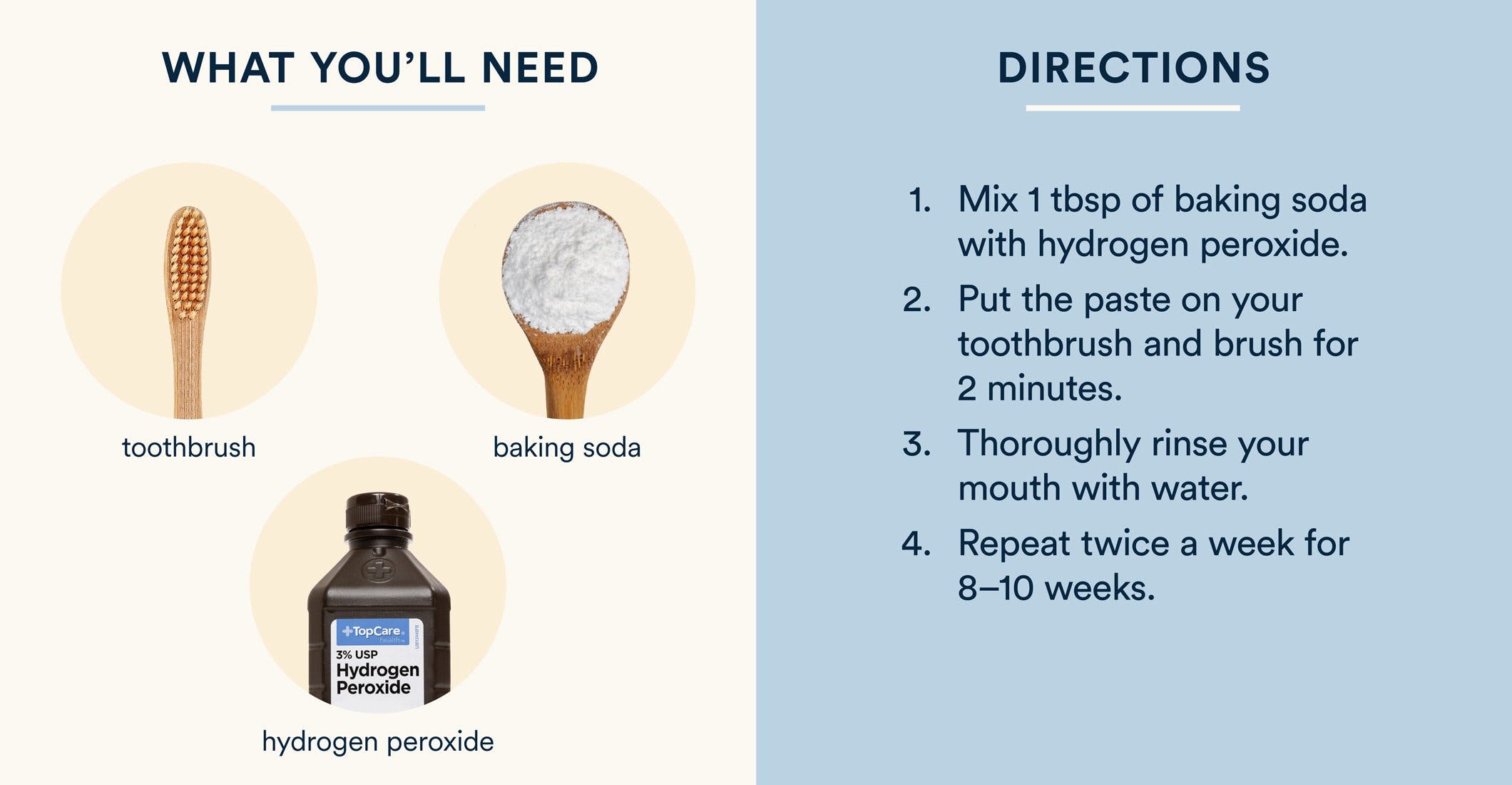
1. Is Hydrogen peroxide efficient?
Hydrogen peroxide is a common and effective ingredient in many commercially available teeth whitening solutions. Products that contain peroxide, such as hydrogen peroxide and carbamide peroxide, act as bleaching agents to change the color of your teeth. Peroxide can partially penetrate the layers of teeth and remove compounds that cause staining. The concentration of hydrogen peroxide in store-bought teeth whitening kits can be as high as 10%. Dentists can also offer whitening treatments with hydrogen peroxide concentrations of up to 40%.
On the other hand, most store-bought hydrogen peroxides have a concentration of 3%. Many people worry that higher peroxide levels can lead to more side effects, such as: B. Enamel degradation and tooth sensitivity. However, this is not always the case. However, it seems to matter how long these products are left on your teeth. In fact, the authors of a 2016 study found that lower concentration gels had more negative effects on tooth enamel when left on teeth for longer periods of time.
Higher concentrated gels generally take less time to take effect on teeth, which can reduce the risk of enamel damage. However, another study in the American Journal of Dentistry found that a mouthwash containing just 1.5% hydrogen peroxide produced a remarkable whitening of human tooth enamel after 4 weeks. People with sensitive teeth should consult their dentist before using hydrogen peroxide to whiten their teeth.
2. How to whiten teeth with Hydrogen peroxide?
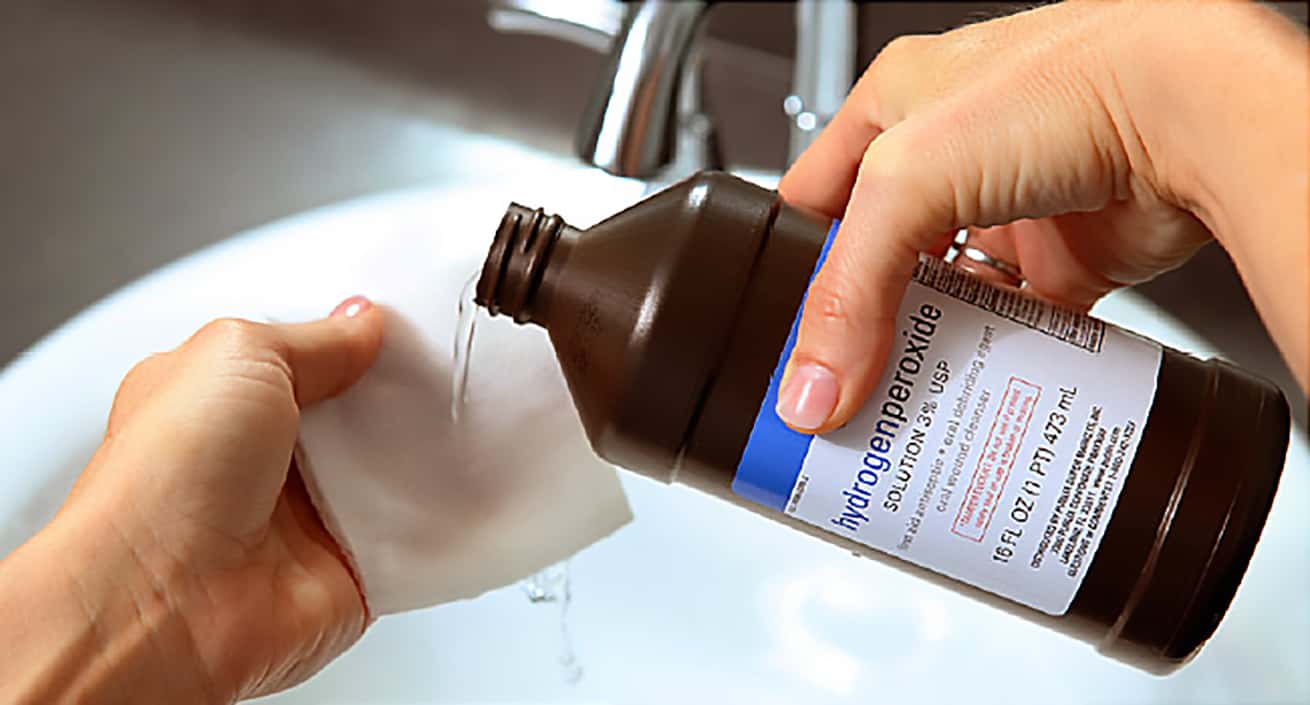
To make a peroxide mouthwash, add 60ml of 3% hydrogen peroxide and 60ml of water to a small glass. Swish this mixture in your mouth for 2 to 4 minutes each day before spitting it out. Do not swallow the liquid. Alternatively, a homemade paste can help some people get rid of small stains. To make this paste, add 1 teaspoon of hydrogen peroxide to enough baking soda to make a smooth, thick paste. Apply the paste directly to your teeth with a toothbrush. Leave the paste on your teeth for a few minutes and then rinse off with water. Do not swallow the paste.
Many over-the-counter teeth whitening products contain hydrogen peroxide or carbamide peroxide, which breaks down into hydrogen peroxide. The American Dental Association (ADA) states that products with the ADA seal of approval are safe and effective whitening treatments. Individuals should carefully follow the directions of these products to get the best results. For mild tooth discoloration, a simple rinse with hydrogen peroxide may be sufficient. Anyone who experiences tooth pain or sensitivity when using hydrogen peroxide products should discontinue use and see a dentist.
3. Safety and Risks
Before using hydrogen peroxide to whiten your teeth, there are a few risks you need to consider. Common side effects of teeth whitening methods include sensitivity of the teeth and gums, and irritated or inflamed gums. Anyone experiencing these symptoms during treatment should discontinue use of the product and contact their dentist to discuss other options.
Some people may prefer to have their teeth whitened with hydrogen peroxide at a clinic. The dentist may ask the person to come in for the cleaning first. By cleaning the tooth surface, hydrogen peroxide can penetrate the teeth evenly. During this appointment, the dentist will also check for cracks, as cracks in the teeth can allow the peroxide to penetrate further into the tooth. This can become a problem if the peroxide comes into contact with the delicate dentin underneath as it can cause irritation or sensitivity.
4. Other solutions to whiten teeth at home
There are many other teeth whitening solutions that people can use at home. While some anecdotal evidence suggests they are effective, many of the popular home remedies for teeth whitening have very little scientific evidence to support their use.
However, most of these home remedies for teeth whitening should be relatively safe to try. They include:
- Coal and salt
- Sodium bicarbonate
- Lemon juice
- Pull the oil with coconut oil
- Apple Cider Vinegar
The ADA does not recommend any of these methods and notes that research shows that some of these methods are ineffective and may actually damage teeth or cause other adverse effects. Regardless of what whitening solution a person uses, they should speak to their dentist first.
B. Does Hydrogen Peroxide Whiten Teeth?
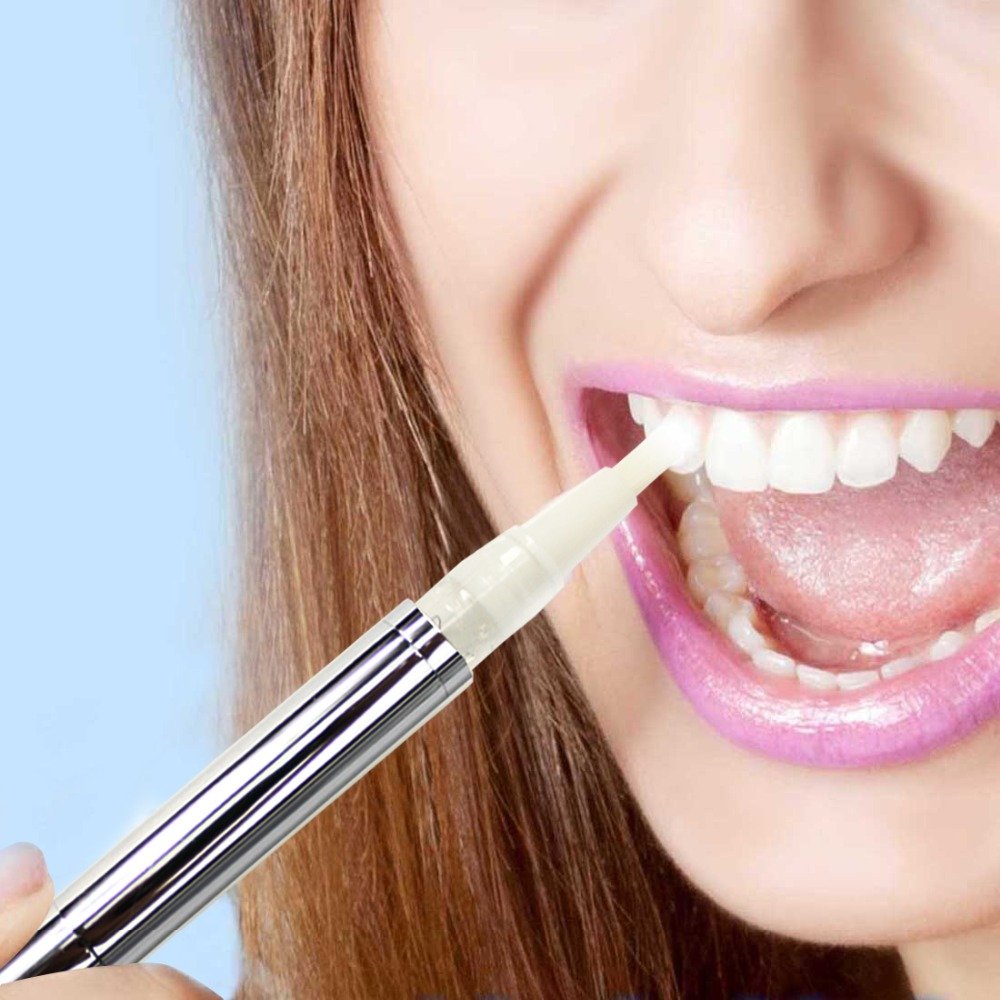
Teeth whitening has become increasingly popular in recent years as more and more products are launched. But many of these products can be quite expensive, leading people to look for cheaper ways. The cheapest way to whiten your teeth at home (and drug backed by extensive research) is the main ingredient in most teeth whitening products: hydrogen peroxide.
1. What science says
Here’s what you need to know: Most bottles of hydrogen peroxide you can buy at a drug store or supermarket are diluted by about 3%. The amount of hydrogen peroxide used in commercial whitening treatments varies and can reach as high as 10% in some products. However, scientific studies suggest that dilution is a good thing when using hydrogen peroxide to whiten teeth. Too much concentration can damage the enamel or the outer layer of your teeth.
In one study, scientists applied dilute solutions of 10, 20, and 30 percent hydrogen peroxide to human teeth that had been extracted for different periods of time. They found that higher concentration solutions caused more damage to teeth, as did prolonged exposure of teeth to hydrogen peroxide. This suggests that treatments low in hydrogen peroxide used for shorter periods of time have the least potential to damage teeth.
According to another study, scientists found that a 5 percent hydrogen peroxide solution was just as effective as a 25 percent solution at whitening teeth. However, to achieve the same degree of whiteness, the teeth would need to be whitened 12 times with the 5% solution to achieve the same degree of whiteness once with the 25% solution. This means that with short treatments at low concentrations, you will need to do more treatments to achieve the desired whiteness.
2. How do you use hydrogen peroxide as a teeth whitening agent?
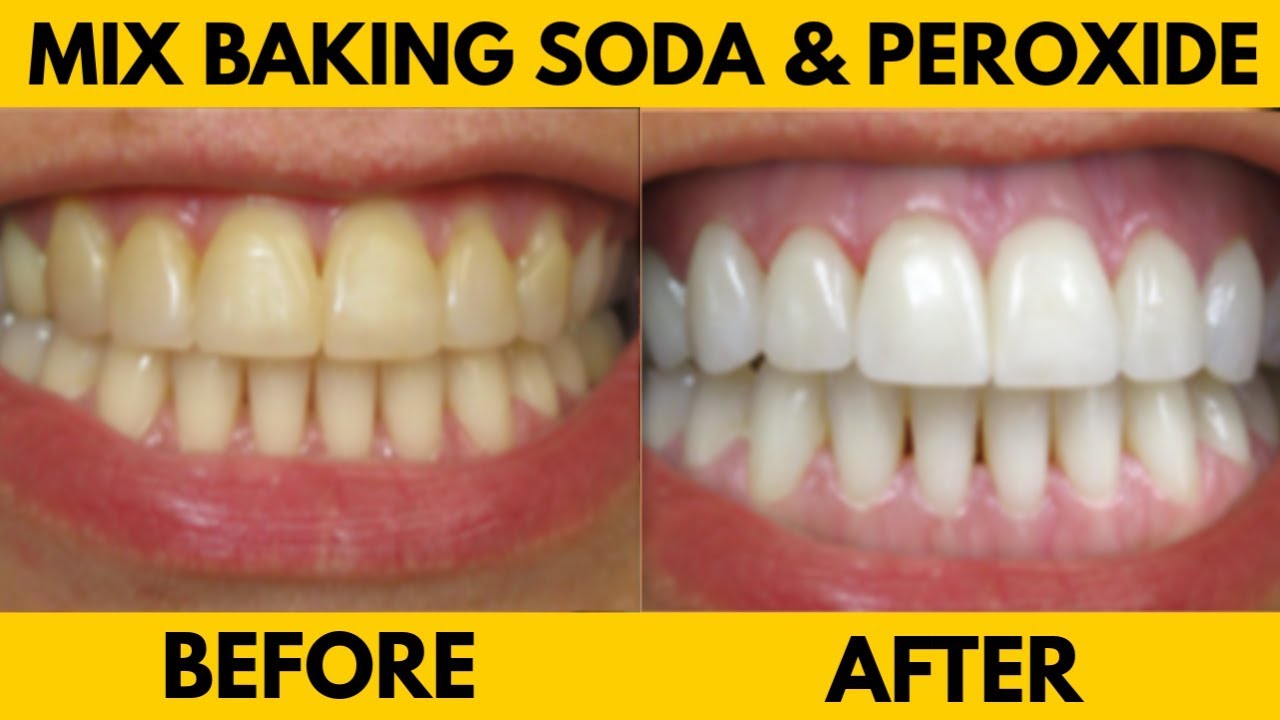
There are two options: clean the mouth or mix it with baking soda and apply as a paste to the teeth before rinsing.
a. Using hydrogen peroxide as a rinse:
- Mixing equal amounts of hydrogen peroxide with water, e.g. 1/2 cup to 1/2 cup.
- Swipe this mixture around your mouth for about 30 seconds to 1 minute.
- If your mouth hurts, stop and spit out the solution, trying not to swallow any of the mixture.
b. Using hydrogen peroxide in a paste:
- Mix a few teaspoons of baking soda with a small amount of hydrogen peroxide in a bowl.
- Mix together soda and peroxide with a clean spoon.
- Add a little more peroxide until you get a thick but not gritty paste.
- Use a toothbrush to apply the paste to your teeth in small, circular motions for two minutes.
- Leave the paste on your teeth for a few minutes.
- Then wash the paste off completely by rinsing your mouth.
Be sure to remove the entire folder before continuing with your day.
3. Are there any side effects?
Several studies suggest that using hydrogen peroxide — whether in a commercial product or at home — can damage your teeth if done incorrectly. The risk of damage increases if you:
- Use a very strong hydrogen peroxide solution
- Leave the hydrogen peroxide in contact with your teeth for an extended period of time (more than a minute when cleaning, or two minutes when brushing as a paste).
- Apply hydrogen peroxide to your teeth very often (more than once a day).
Before applying hydrogen peroxide to your teeth, ask your dentist what application strategy and schedule makes the most sense for your situation. Tooth sensitivity is possibly the most common side effect of using hydrogen peroxide. After a peroxide treatment, it may be uncomfortable to eat hot or cold foods or liquids. Avoid doing this while in pain. Because if used too often or in too high concentrations, peroxide can significantly damage tooth enamel. One of the most serious side effects of hydrogen peroxide whitening is inflammation of the roots of the teeth in the gums. This problem can lead to secondary problems like infections, which can be expensive to treat.
4. Should you use hydrogen peroxide on your teeth?
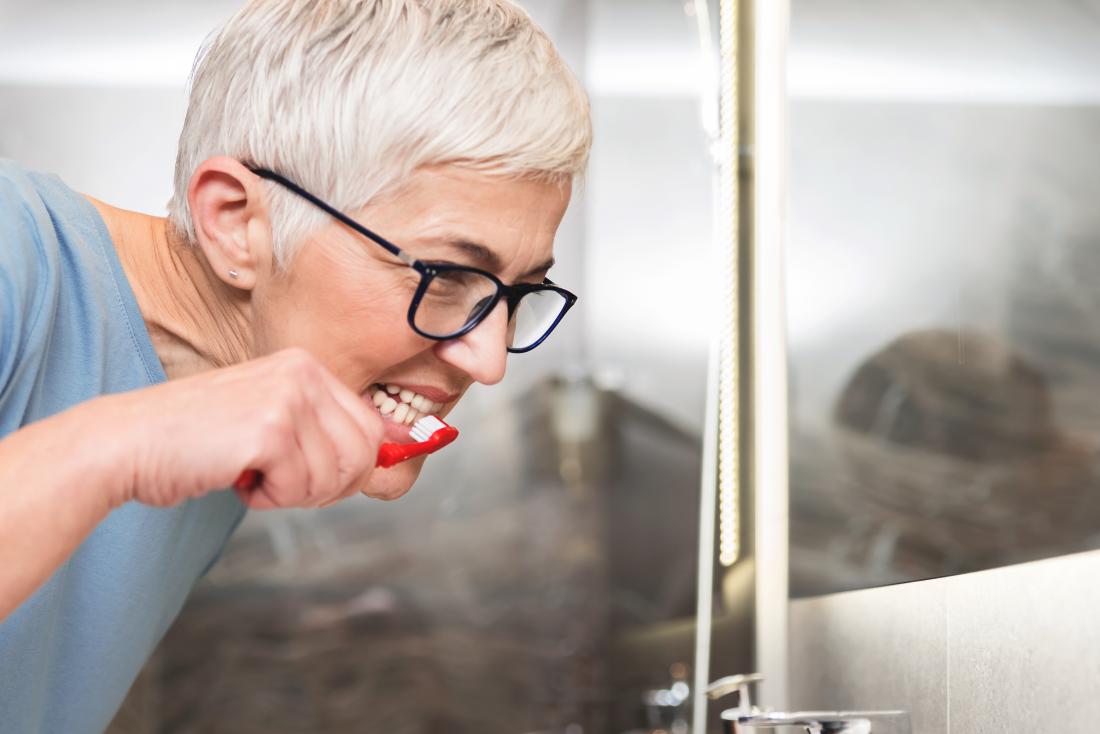
Hydrogen peroxide is an inexpensive household product that you probably already have on hand. When used carefully, it can be an effective way to whiten your teeth. However, if used incorrectly – in too high concentrations or too frequently – it can lead to serious and sometimes expensive tooth damage. If you want to whiten your teeth with hydrogen peroxide, be careful. If you have any questions, consult your dentist who can advise you on the best way to clean your oral health. In the meantime, you can keep your teeth white and prevent staining by avoiding foods and drinks that can stain your teeth.
a. Avoid these drinks after Hydrogen peroxide teeth whitening:
- Energetic Drinks
- Coffee
- Red wine and tea
- Carbonated drinks, which are more likely to stain your teeth
- Sweet
- Berries, including blackberries
- Blackberry
- Strawberries and raspberries
- Tomato based sauces
- Citrus fruits
When consuming these foods and drinks, rinsing or brushing your teeth later can prevent discoloration.
C. How Do You Use Hydrogen Peroxide To Whiten Your Teeth?
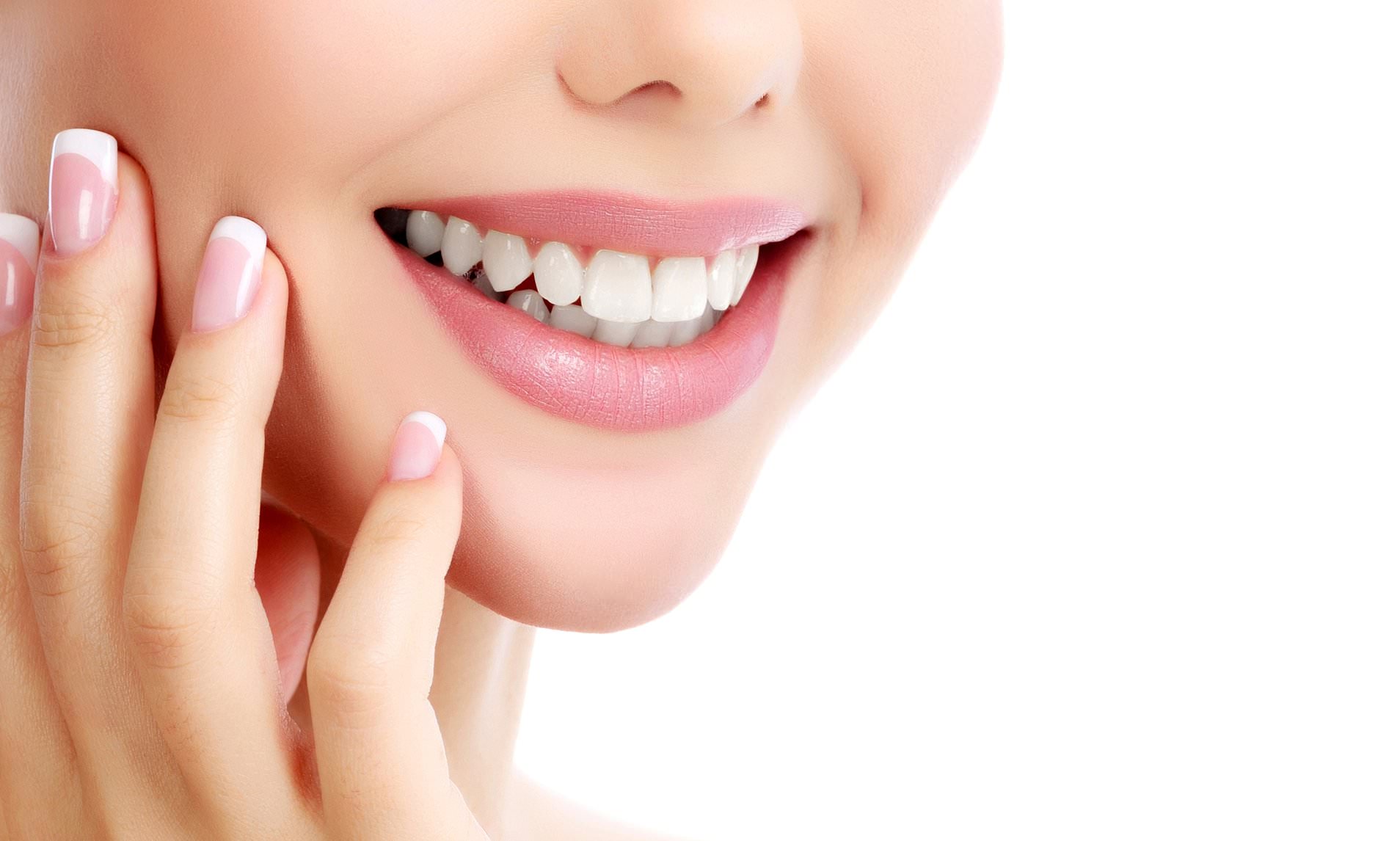
Recently, the use of teeth whitening products has increased dramatically. However, the fact is that many of these products are quite expensive and not everyone can afford them. Therefore, there is interest in cheaper options, one of which is hydrogen peroxide. The interesting thing about hydrogen peroxide is that it is an ingredient in many teeth whitening products and is readily available at home.
1. Scientifically supported?
The hydrogen peroxide you buy at pharmacies or drugstores is diluted by about 3%. This percentage can reach 10% for many teeth whitening products on the market. Dentists believe dilution is good because high levels of hydrogen peroxide can destroy tooth enamel. Therefore, to avoid damage to teeth, only use diluted portions and also for short periods. This is because prolonged use of rough parts can damage your teeth.
2. How can you whiten your teeth with hydrogen peroxide?
This can be done two ways: you can gargle it in your mouth, or you can mix it with baking soda, which you apply to your teeth and rinse. If you want to use hydrogen peroxide as a rinse, the following steps must be followed:
- Pour in equal parts water and hydroxide peroxide and mix (half a cup is recommended).
- Gargle the mixture in your mouth for about half a minute.
- If you feel pain, stop and spit it out immediately. Also, be careful not to swallow the mixture.
a. For those who prefer hydrogen peroxide as a paste, here are the steps:
- Pour in a few teaspoons of baking soda and add a small amount of hydrogen peroxide.
- Mix up the two.
- Keep adding hydrogen peroxide until you get a consistent paste.
- Apply the paste to your teeth with a toothbrush.
- Leave the paste on your teeth for two minutes.
- Rinse the toothpaste properly by gargling with water. Make sure there is no residue of the paste in your mouth.
3. What are the side effects of using hydrogen peroxide for teeth whitening?
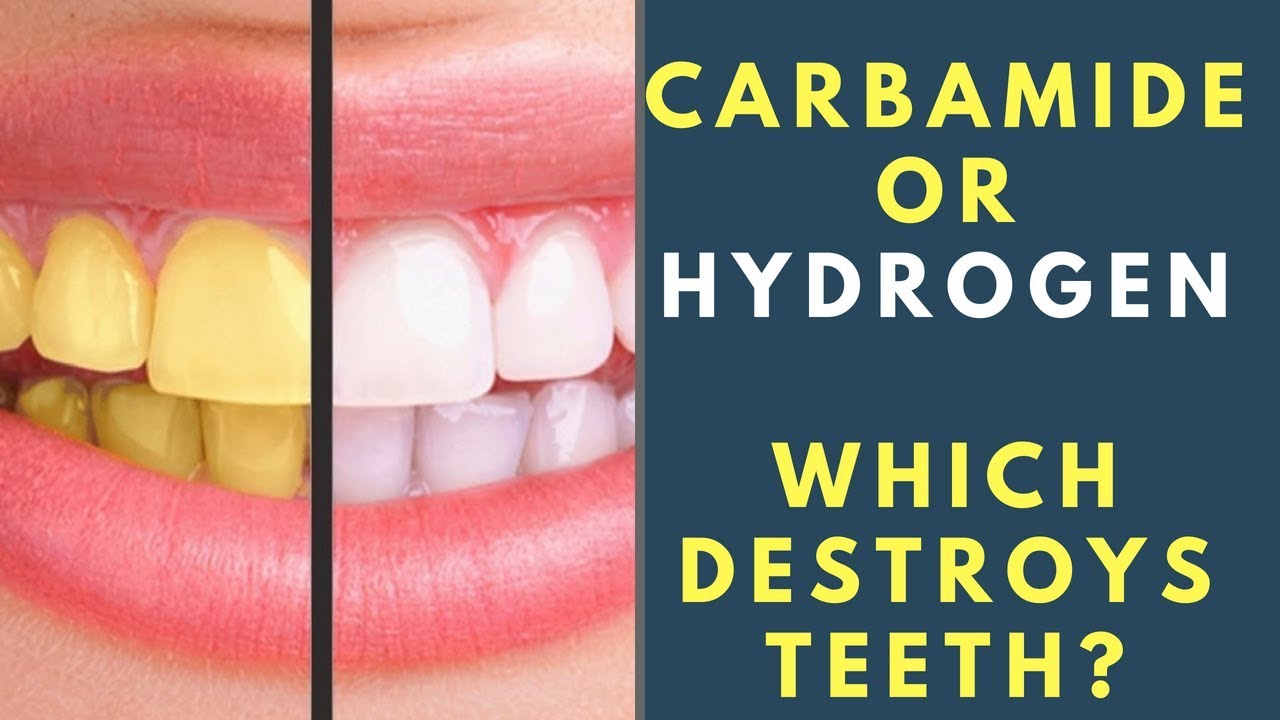
Studies have confirmed that there is a risk of damaging your teeth when using hydrogen peroxide, either in a teeth whitening product or when used at home. This damage can be increased under certain circumstances. These circumstances are as follows:
With a really concentrated hydrogen peroxide solution.
Leave the hydrogen peroxide solution in contact with your teeth for a long time.
Use hydrogen peroxide on your teeth very often.
All of this means that before using hydrogen peroxide on your teeth, you should make an appointment or consult your dentist about teeth whitening in your area. After you take a close look at the condition of your teeth, the Carrollwood dentist at your local dental clinic can give you more helpful and professional advice on how to proceed. At Playa Family Dentistry, we can offer the safest, most effective teeth whitening services in your area. The most frequently observed side effect of the hydrogen peroxide used is tooth sensitivity. In this condition, eating hot or cold foods after applying hydrogen peroxide to your teeth can be a bit uncomfortable. If you feel pain while doing this, talk to your dentist. Tooth sensitivity is the result of hydrogen peroxide eroding your tooth enamel – enamel is the protective covering of your teeth.
D. Is Hydrogen Peroxide Safe For Teeth Whitening?
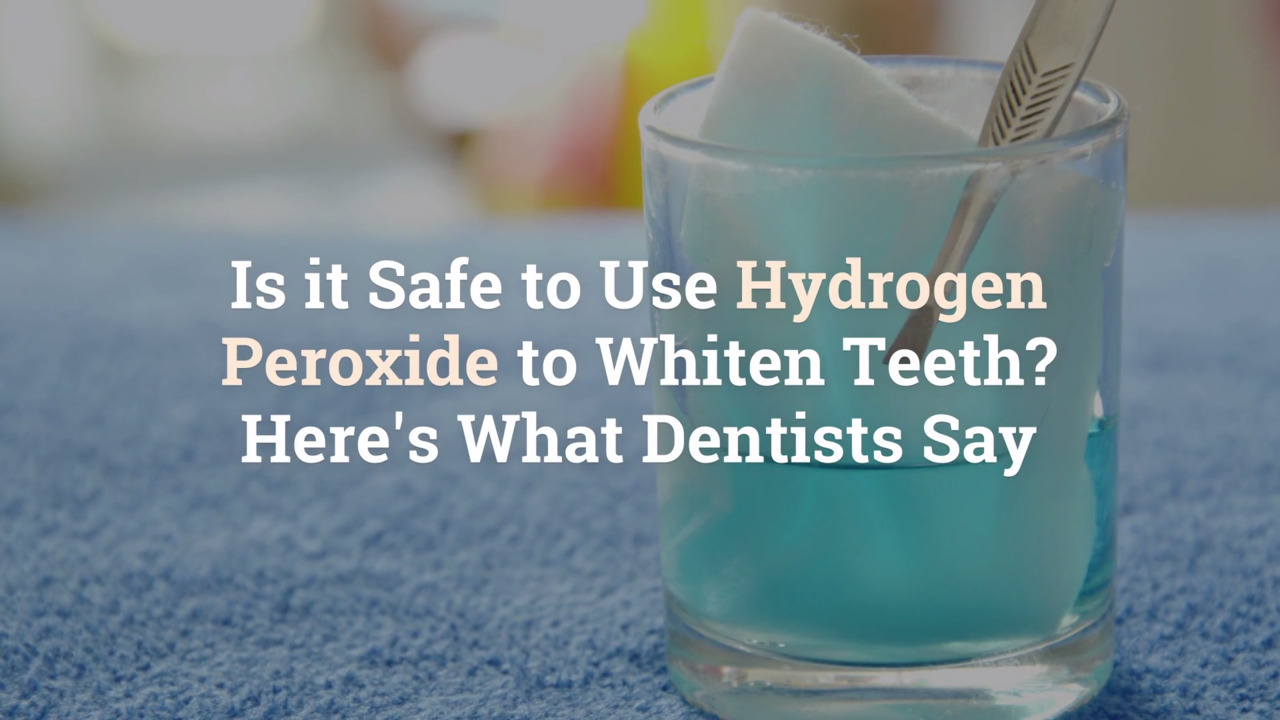
Hydrogen peroxide is one of those household items that everyone keeps in their closet. He is easily recognized by his brown bottle, which stands out in a sea of comet cleaning powder and alcohol. Hydrogen peroxide is one of the things we see and use a lot. Its versatility makes it great for many things from cleaning cuts to cleaning upholstery to bleaching hair. Some people even use it to de-yellow their toenails. But should you use it to yellow your teeth?
1. How does hydrogen peroxide work?
Hydrogen peroxide, chemically expressed as H2O2, is a highly potent compound because it oxidizes as soon as it comes into contact with air. Although the oxidation that occurs effectively kills bacteria, it also damages the cell wall and most materials it comes in contact with. This makes hydrogen peroxide a very aggressive chemical.
However, many in-office and home treatments use a peroxide-based agent, carbamide peroxide, to whiten teeth. Carbamide peroxide whitens teeth by breaking down into hydrogen peroxide and urea, which acts like an acid to remove stains on teeth. You’re probably thinking, “Doesn’t acid cause tooth decay? That can’t be good for your teeth. I might as well spill soda in my cavity. Don’t be put off from whitening products just yet. Most bleaches that you get from CVS or that we use in the office contain only about 10% carbamide peroxide. The American Dental Association approves bleaches with concentrations of up to 10% peroxide. Above 10% you run the risk of destroying your valuable nail polish.
2. What about the brown bottle things?
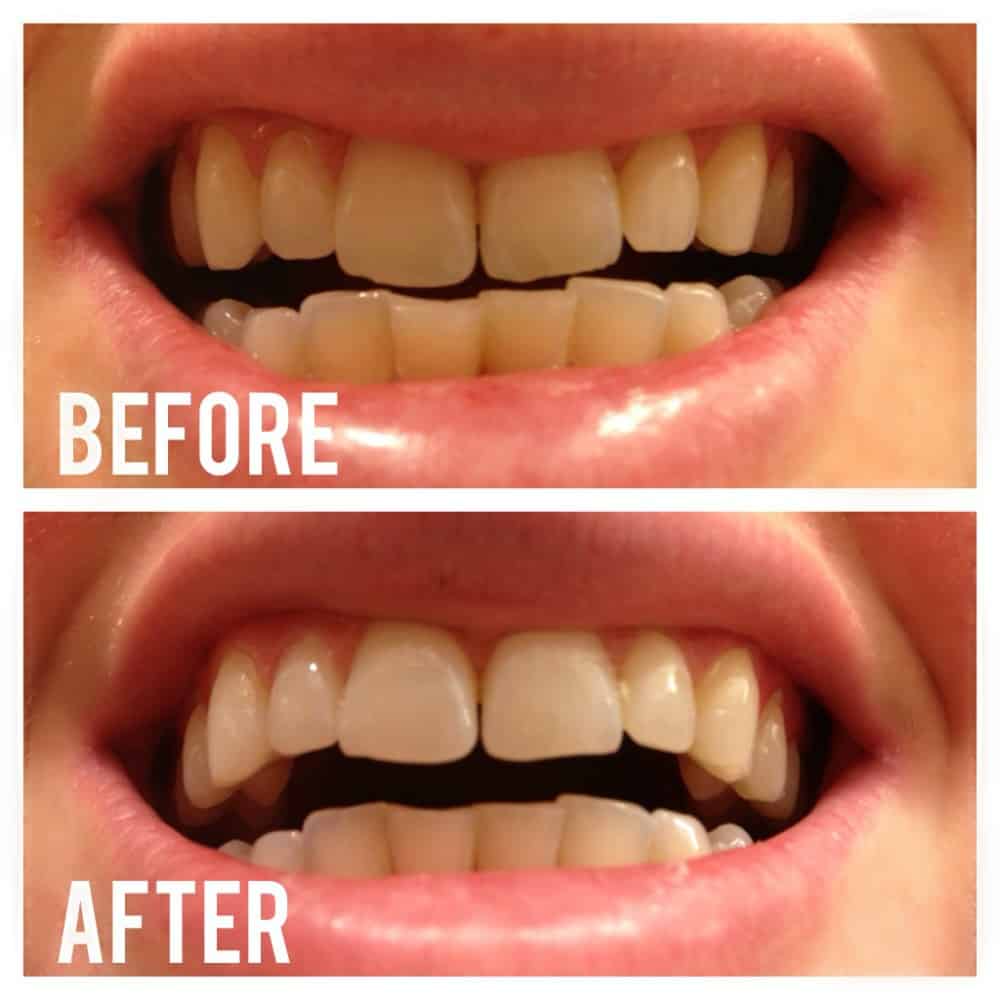
You may know someone who twirls around with the bottled brown store-bought hydrogen peroxide we talked about earlier. For the past 60 years, the use of hydrogen peroxide has been a “whitening fad” in oral health. Typically, store-bought hydrogen peroxide has a concentration of around 3%, so it’s safe for your mouth. With only 3% hydrogen peroxide and 97% water, it is so unstable that it can become water over time.
However, using low doses of peroxide or high concentrations over a long period of time can inflame the gums, tongue, and roof of the mouth. Not to mention that swallowing hydrogen peroxide can destroy your esophagus and damage your internal organs. And here’s the thing, the hydrogen peroxide in the amber bottle isn’t even whitening your teeth. It can kill some periodontal bacteria but also upsets the natural oral flora. Since hydrogen peroxide is an oxidizer, it damages your cells, so why take the risk?
If you want the whitening and oxidizing effects of hydrogen peroxide, try a toothpaste with a peroxide blend. It’s best to spend a few dollars more for peroxide-based concoctions made specifically to whiten your teeth. ADA-approved teeth whitening kits contain a healthy amount of carbamide peroxide, which has been shown to keep your tooth enamel healthy.
3. Summary
Hydrogen peroxide is a common home remedy for teeth whitening. It is part of many teeth whitening solutions for use at home and in the dental office. A simple hydrogen peroxide mouth rinse can help remove light stains. However, a person should avoid leaving hydrogen peroxide solutions on their teeth for long periods of time. For those with darker blemishes, stronger whitening options are available both over the counter and at the dentist.


